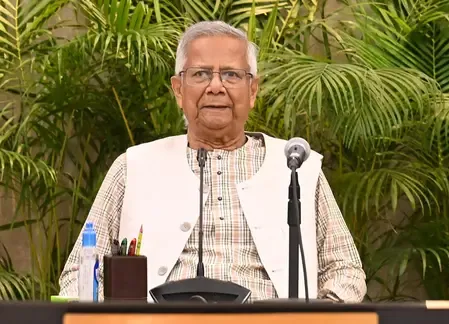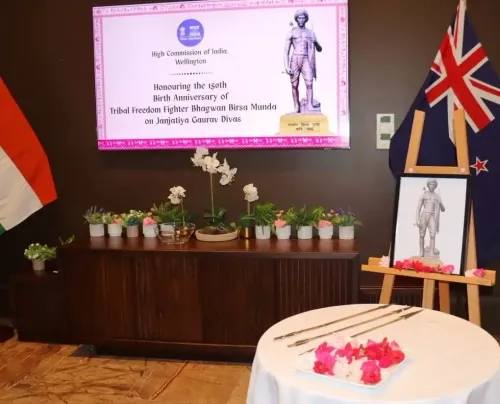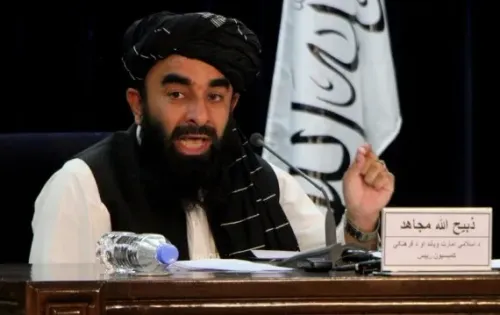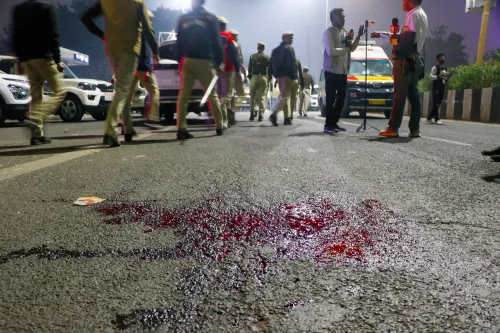Is Muhammad Yunus Leading Bangladesh into Crisis?

Synopsis
Key Takeaways
- Political tensions are escalating in Bangladesh.
- The Democratic Left Alliance has voiced strong criticisms against Chief Advisor Muhammad Yunus.
- Upcoming elections in February 2026 are pivotal for the country's political landscape.
- Accusations of unconstitutional actions could undermine public trust.
- Dialogue among political factions is essential for national stability.
Dhaka, Nov 15 (NationPress) Amid escalating political tensions in Bangladesh, the Democratic Left Alliance (LDA) has criticized Chief Advisor Muhammad Yunus of the interim government for allegedly steering the country towards an enduring crisis. This move is perceived as an effort to appease the Bangladesh Nationalist Party (BNP), the radical Islamist party Jamaat-e-Islami, and the National Citizen Party (NCP), according to local media reports.
The backlash followed Yunus's recent announcement that national elections and a referendum are scheduled to occur simultaneously in the first half of February 2026.
In their statement, the LDA—a coalition of six leftist parties—contended that Yunus’s declarations regarding the July Charter’s implementation, the referendum, and the Constitution Reform Council were “one-sided and unconstitutional.”
“The constitution does not authorize the issuance of such an order [July charter order] nor does it permit a referendum. Only the president has the authority to issue ordinances,” the LDA emphasized, as reported by Bangladesh’s leading newspaper, The Daily Star.
The alliance criticized Yunus's speech for neglecting dissenting remarks from the political parties and claimed that his assertion of consensus on 30 out of 48 constitutional proposals during discussions with the consensus commission was misleading.
“Consensus exists for no more than 11 proposals among all political factions. If the agreements among BNP, Jamaat, and NCP are deemed representative of all parties, the legitimacy of the consensus commission’s discussions becomes questionable,” the LDA highlighted.
According to their statement, any orders issued in the name of the President exceed the jurisdiction and authority of an interim government.
In parallel, Jatiya Samajtantrik Dal (JSD) President ASM Abdur Rab cautioned that any further political turmoil deriving from the July charter's implementation could lead Bangladesh toward calamity.
“In this crucial period for the nation, we must avoid political fragmentation, hostility, and rivalries. To ensure national security and stability, it is vital to establish a balance of constitutional, political, and social safeguards through dialogue and cooperation,” the JSD leader asserted.
Previously, Jamaat-e-Islami leader Syed Abdullah Mohammad Taher expressed doubts about the neutrality of the upcoming referendum and February 2026 elections, claiming Yunus's recent address indicated that the interim government was being molded to serve a specific party's interests.
The eight Islamist parties, including Jamaat, condemned Yunus's announcement and reiterated their demand for a referendum before the elections.
Bangladesh is currently engulfed in increasing uncertainty and political unrest as the nation approaches next year's elections.
The groups that once allied with Yunus to dismantle the democratically elected Awami League government, led by Sheikh Hasina, now find themselves in contention over reform proposals.









